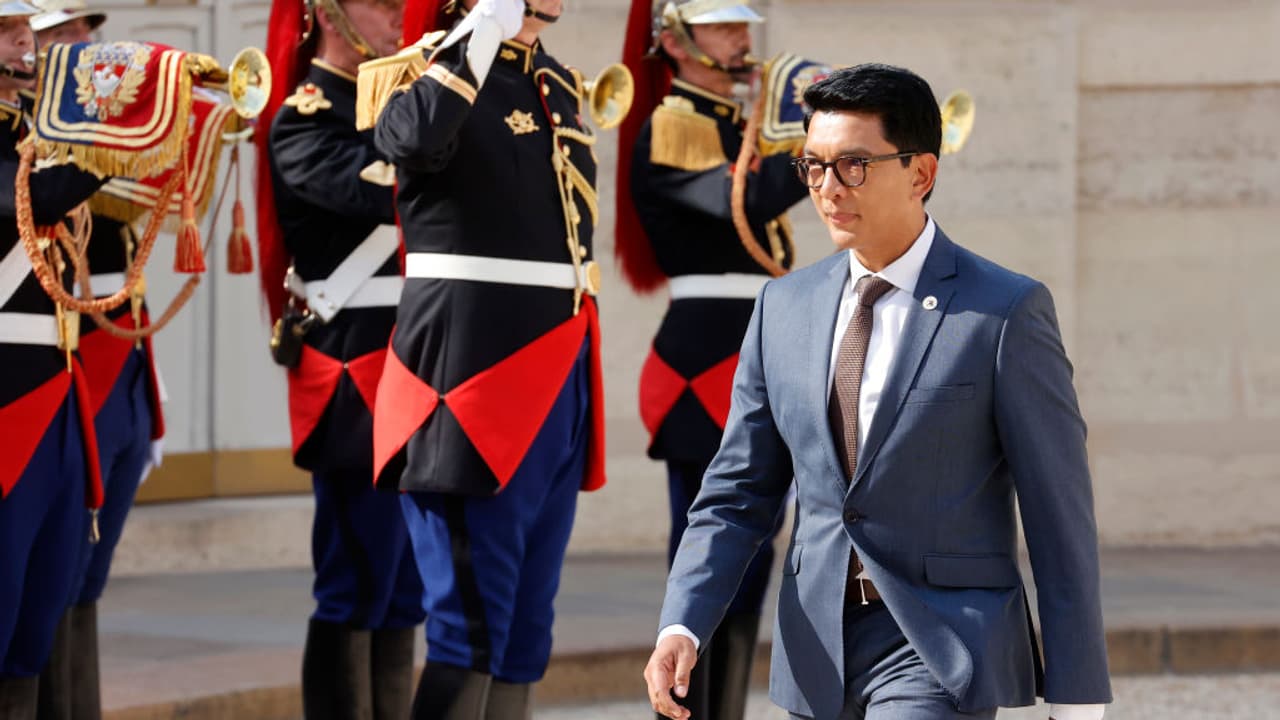Madagascar President Andry Rajoelina is reportedly in hiding after denouncing the move as an illegal power seizure. The unit, which previously overthrew President Ravalomanana, has now appointed a new army chief, creating a political vacuum.
Bengaluru (India): In a dramatic reversal of fortune, President Andry Rajoelina of Madagascar finds himself ousted and reportedly in hiding, brought down by the very military force that propelled him to power sixteen years ago. The Corps d’administration des personnels et des services techniques des armées (CAPSAT), an elite administrative and technical unit of the Malagasy military, has seized control of the armed forces in a move that echoes its pivotal role in the 2009 political crisis. But this time, the tables have turned: the kingmaker has dethroned the king it once crowned.
What Happened in 2009?
CAPSAT first emerged as a decisive political force in early 2009, during a period of profound unrest in Madagascar. Citizens had taken to the streets of Antananarivo, furious over corruption, economic mismanagement, and authoritarian governance under then-President Marc Ravalomanana. Leading the charge was Andry Rajoelina, the capital’s charismatic mayor, who organized massive demonstrations demanding the president’s resignation.
As tensions reached a boiling point, CAPSAT made its move. Soldiers at Camp Capsat mutinied, refusing government orders and fracturing the military’s loyalty to Ravalomanana. With the security apparatus paralyzed and government forces unable to respond, Ravalomanana’s grip on power collapsed. Into the void stepped Rajoelina, who assumed leadership of the High Transitional Authority. Though the transition involved little bloodshed, CAPSAT’s strategic intervention proved decisive. The unit had demonstrated its unique power: the ability to tip the balance in moments of crisis and shape Madagascar’s political destiny.
For years after 2009, CAPSAT enjoyed considerable influence as a key pillar of Rajoelina’s rule. But beneath the surface, tensions were building. Members of the elite unit, drawn from the gendarmerie and connected to powerful business and political networks, grew increasingly wary of the president they had helped install. Suspicions about corruption and governance mounted, mirroring the very grievances that had toppled Ravalomanana.
What is the Current Situation?
The breaking point came in late September, when protests erupted across Madagascar over acute shortages of electricity and water. What began as demands for basic services quickly expanded into broader condemnation of corruption and misrule, which was seen as familiar echoes of 2009.
Within a day, CAPSAT declared itself in control of Madagascar’s military operations and appointed General Demosthène Pikulas as the new chief of staff, a move reportedly recognized by the defense ministry in the president’s absence. Colonel Michael Randrianirina, speaking on behalf of CAPSAT, stated that the unit had assumed authority over the armed forces and would oversee a transition toward civilian governance.
President Rajoelina denounced these actions as an illegal seizure of power. Reports suggest he has fled the capital amid growing security concerns. The political vacuum has left the country’s institutions in disarray, with the National Assembly reportedly impeaching the president in absentia. International reactions have been swift. Airlines, including Air France and Emirates, suspended flights to Madagascar, while the United Kingdom advised against all but essential travel. Regional bodies, including the African Union, called for calm and dialogue to prevent further escalation.
Why is CAPSAT so Influential?
The CAPSAT army unit wields significant influence in Madagascar due to its unique combination of strategic, historical, and institutional factors. While not a frontline combat force, CAPSAT controls critical aspects of the military, including personnel management, administrative support, logistics, and technical services, giving it leverage over the army’s overall functionality and readiness. Led by elites from the gendarmerie and closely linked to business and political networks, many members have grown increasingly suspicious of Rajoelina in recent years, aligning themselves with broader political or societal movements. The unit’s support can also legitimize popular protests, as demonstrated when it sided with Gen Z-led demonstrations and issued a public declaration refusing orders to fire on protesters, emphasizing protection of citizens’ rights. CAPSAT further consolidated its authority by appointing General Demosthène Pikulas as Chief of Army Staff, strengthening its command over military operations. Combined with its well-organized structure and ability to coordinate decisive action, CAPSAT remains one of Madagascar’s most powerful institutions, capable of intervening in political crises to influence outcomes in favour of its strategic or elite-aligned interests.
